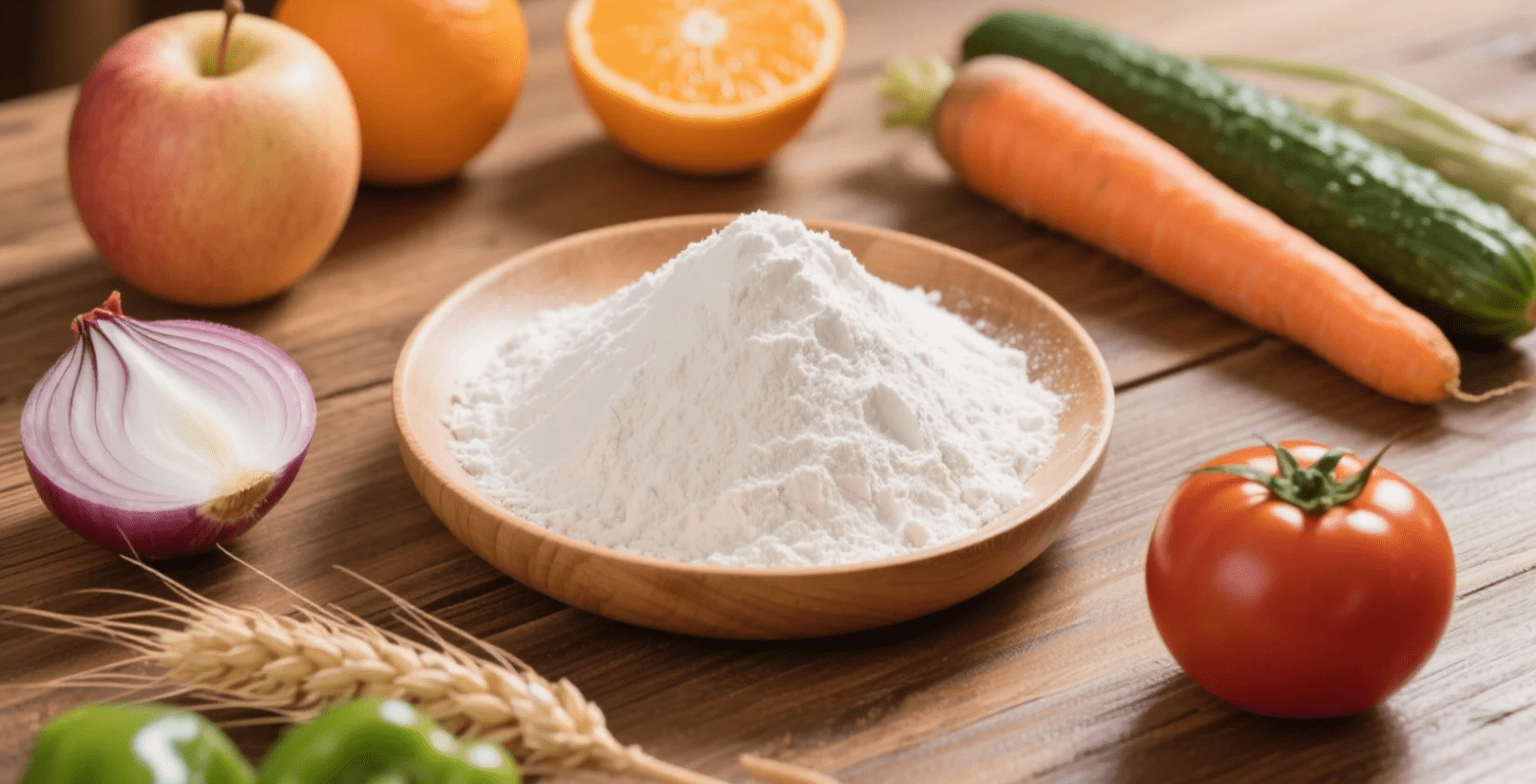In today’s health-conscious and eco-aware market, food manufacturers are under growing pressure to create clean-label products — those with simple, natural, and recognizable ingredients. Among the many ingredients driving this movement, organic maltodextrin powder has emerged as a standout performer. Whether in snacks, beverages, nutritional supplements, or bakery products, this versatile carbohydrate offers both functional and labeling advantages, helping brands meet consumer expectations for transparency and quality.
This article explores why manufacturers are increasingly adopting organic maltodextrin as a trusted ingredient for clean-label innovation.
1. Clean-Label Demand and Consumer Expectations
The “clean-label” trend is more than just a passing fad — it’s a global shift in how people view food. Shoppers now look for:
- Simple ingredient lists they can understand
- Certified organic or non-GMO claims
- Free-from artificial additives, colors, and preservatives
Organic maltodextrin fits perfectly into this philosophy. Unlike conventional maltodextrin derived from chemically treated starch, organic maltodextrin is produced from certified organic raw materials such as corn, tapioca, or rice, using natural enzymatic processes. This ensures a clean, non-GMO, and chemical-free ingredient that appeals to label-conscious consumers.
2. A Functional Ingredient with Multiple Benefits
While the “clean” aspect is important, manufacturers also need functionality. Organic maltodextrin provides numerous technical benefits:
- Excellent bulking agent for powdered mixes
- Improves texture and mouthfeel in beverages and dairy alternatives
- Stabilizes flavors, colors, and nutrients in dry formulations
- Enhances spray-drying performance for fruits, vegetables, or herbal extracts
- Low sweetness allows it to blend seamlessly with other natural sweeteners
These functional advantages make it indispensable across industries such as sports nutrition, baby food, plant-based beverages, sauces, soups, and bakery.
3. Sustainable and Traceable Production
Sustainability is another key factor influencing clean-label sourcing decisions. Organic maltodextrin is produced through eco-friendly farming and processing methods that avoid synthetic fertilizers, pesticides, and harmful residues.
Producers like BIOSTARCH go further by ensuring traceability — every step, from organic crop Organic Maltodextrin Powder fo cultivation to final packaging, is monitored and certified according to USDA and EU organic standards. This traceability gives buyers peace of mind that their ingredients are ethically and sustainably sourced.
4. Clean Label ≠ Compromise on Performance
One common misconception is that “natural” or “organic” ingredients may perform less effectively than synthetic ones. In reality, organic maltodextrin delivers the same, if not better, functionality as its conventional counterpart. It has neutral taste, consistent quality, and excellent solubility, making it a drop-in replacement for standard maltodextrin in most formulations.
As more companies reformulate to meet cleaner standards, organic maltodextrin offers a seamless transition — functional, label-friendly, and cost-effective.
5. Ideal for Health and Nutrition Products
Health and wellness brands especially value organic maltodextrin for its digestibility and low glycemic load. It is often used in:
- Energy drinks and meal replacements for sustained energy
- Protein powders and supplements to enhance texture and mixability
- Baby and infant nutrition due to its purity and gentle carbohydrate profile
For these reasons, organic maltodextrin is now a staple in nutraceutical and dietary supplement manufacturing.
6. Meeting Certification and Regulatory Requirements
Another advantage for global food producers is that organic maltodextrin often comes with multiple certifications, including:
- USDA Organic
- EU Organic
- Non-GMO Project Verified
- Vegan, Kosher, and Halal certifications
These certifications simplify international compliance and labeling requirements, allowing manufacturers to confidently export or sell in diverse markets.
7. Partnering with Reliable Organic Suppliers
For brands seeking consistency, it’s crucial to partner with a certified and experienced supplier. BIOSTARCH, a professional manufacturer and exporter of organic ingredients, provides premium organic maltodextrin powder with different DE (Dextrose Equivalent) values to suit various applications — DE 8-10, DE 10-15, and DE 15-20.
Their strict quality control, traceable supply chain, and global logistics capabilities make BIOSTARCH a trusted partner for clean-label manufacturers worldwide.
As consumers continue to demand greater transparency and sustainability, organic maltodextrin powder has become a vital tool for food and beverage producers aiming to deliver both performance and purity. It supports the shift toward clean-label innovation without sacrificing function, taste, or efficiency.
By choosing certified organic ingredients from trusted suppliers like BIOSTARCH, manufacturers can confidently meet consumer expectations — and build a cleaner, more sustainable future for the food industry.





























